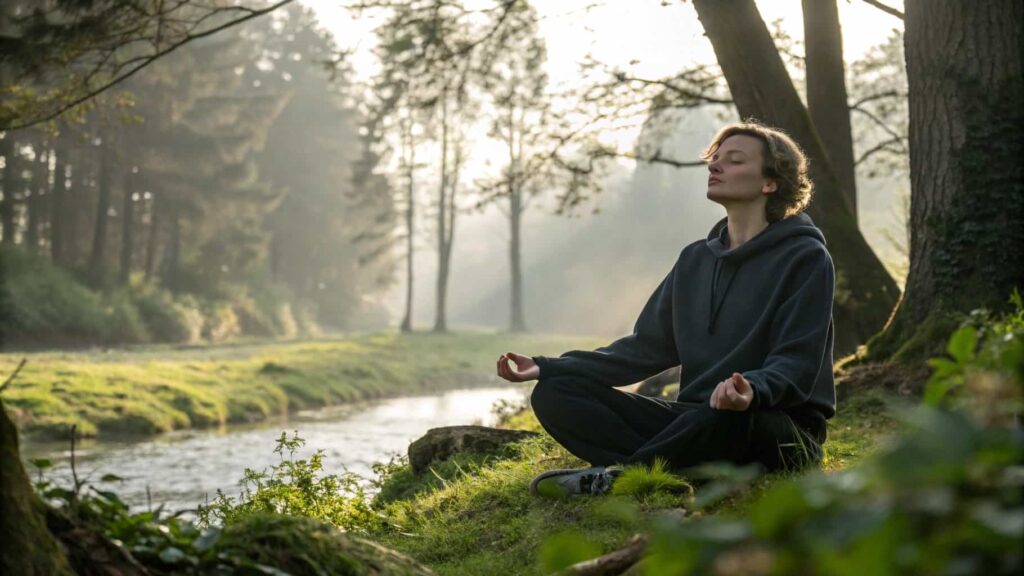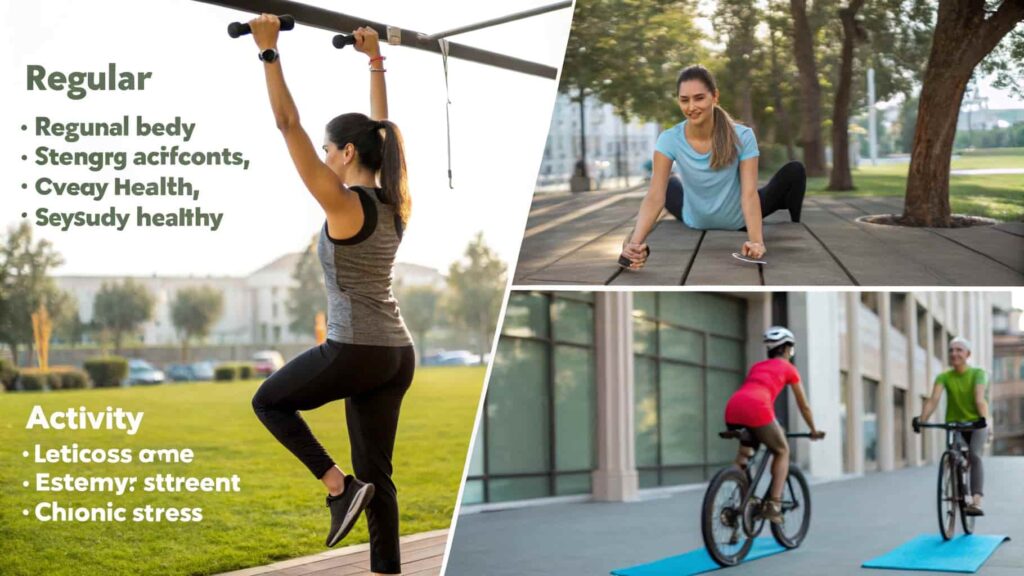Each of these causes can interact with the others, creating a situation where small issues gradually build up into something that In today’s fast-paced world, it can feel like everything is moving at full speed. Our lifestyles, environmental factors, and mental pressures often contribute to a range of health challenges, some of which are less understood or recognized. One such condition, though not medically defined, is hoarhizgemotohin.
While this term might sound unfamiliar or vague, it symbolizes a combination of physical, emotional, environmental, and psychological disturbances that can significantly affect an individual’s overall well-being. In this article, we will explore the different ways you can avoid hoarhizgemotohin and protect your health. By making simple changes in your daily routine and being mindful of your mental and physical environment, you can take proactive steps to prevent such disturbances and lead a more balanced life.
What Is Hoarhizgemotohin and How Does It Affect Health?
Before we dive into how to avoid hoarhizgemotohin, it’s important to first understand what it represents. While hoarhizgemotohin isn’t a medically recognized term, it essentially refers to the amalgamation of various health challenges that stem from environmental pollution, chronic stress, poor lifestyle choices, genetic predisposition, and neglected mental health. These factors can lead to physical ailments, mental health issues, and overall poor quality of life.

What makes hoarhizgemotohin particularly troublesome is that the symptoms are often subtle at first. They can be easily mistaken for other conditions, making it difficult for individuals to identify them early on. However, by recognizing these early signs, you can take preventive action and safeguard your health.
What Are The Major Causes Of Hoarhizgemotohin?
The root causes of hoarhizgemotohin are multifaceted and complex. It is important to address each factor individually in order to better understand how they contribute to the overall condition. Here are some of the key contributors:
Environmental Pollution:
Pollution in the air, water, and soil is one of the leading causes of hoarhizgemotohin. Harmful chemicals, industrial emissions, and poor air quality can contribute to both physical and mental health issues. The constant exposure to these toxins can weaken the immune system, causing fatigue, headaches, and even more severe conditions over time.
Chronic Stress:
Stress has become an almost inevitable part of modern life. From work pressures to personal struggles, chronic stress can take a heavy toll on both the mind and body. When stress becomes prolonged, it disrupts sleep patterns, weakens the immune system, and can lead to burnout and depression.
Poor Lifestyle Choices:
A lack of physical activity, poor diet, and substance abuse can also play a significant role in the development of hoarhizgemotohin. Unhealthy eating habits, such as consuming excessive processed foods and sugars, can lead to inflammation in the body. Inactivity and neglect of physical health are also key contributors.
Genetic Vulnerability:
Some individuals are genetically predisposed to certain health conditions that can contribute to hoarhizgemotohin. These genetic factors, when combined with environmental and lifestyle factors, can increase the risk of developing health issues.
Neglect of Mental Health:
Mental health is often overlooked, yet it plays a crucial role in overall well-being. Neglecting emotional well-being—whether it’s unresolved trauma, anxiety, or depression—can silently affect physical health and contribute to hoarhizgemotohin.
What Are The Early Symptoms Of Hoarhizgemotohin?
Recognizing hoarhizgemotohin early is essential to preventing its progression. Some of the early symptoms are:
- Persistent fatigue: Feeling tired all the time, regardless of how much sleep you get.
- Mood swings: Experiencing heightened emotional responses, including irritability or sadness.
- Anxiety and depression: Mental health struggles that seem to persist over time.
- Headaches or unexplained body aches: Physical discomfort with no apparent cause.
- Withdrawal from social life: Avoiding friends, family, or social events.
- Sleep disturbances: Difficulty falling asleep or staying asleep.
These symptoms can be signs of various health issues, but in the case of hoarhizgemotohin, they represent the early stages of a complex interplay of factors that impact physical and emotional health.
How Can You Avoid Hoarhizgemotohin?
Now that we understand the root causes and symptoms of hoarhizgemotohin, let’s explore the practical steps you can take to avoid it. Taking a holistic approach to your well-being—considering both physical and emotional health—can go a long way in preventing hoarhizgemotohin. Here’s a breakdown of the most effective strategies:
Improve Air and Water Quality:
One of the simplest but most effective ways to improve your health is by addressing the quality of the air you breathe and the water you drink.
- Use air purifiers in your home to remove toxins and allergens.
- Avoid high-pollution areas whenever possible, especially during peak hours.
- Filter your drinking water to avoid contaminants.
- Ventilate your home regularly to ensure fresh air circulates and reduces indoor pollutants.
Adopt a Balanced Diet:
What we put into our bodies directly affects our physical and mental health. A balanced diet rich in essential nutrients can help strengthen the immune system and improve mental clarity.
- Eat whole grains, fruits, and vegetables to provide your body with necessary vitamins and minerals.
- Avoid processed foods, sugars, and artificial additives, which can increase inflammation.
- Stay hydrated by drinking plenty of water throughout the day.
Incorporate Regular Physical Activity:
Physical activity is one of the most effective ways to reduce stress, improve mood, and maintain a healthy body. Engaging in exercise releases endorphins, which are natural mood boosters.
- Aim for at least 30 minutes of moderate exercise daily. Activities like walking, swimming, or yoga are excellent options.
- Incorporate stretching into your routine to alleviate muscle tension and improve circulation.
- Avoid a sedentary lifestyle, which can contribute to inflammation and poor health.
Develop Emotional Intelligence:
Your mental well-being is just as important as your physical health. Taking care of your emotional health can prevent stress from building up and affecting your body.
- Practice mindfulness and meditation to help reduce anxiety and improve mental clarity.
- Seek therapy or counseling if you feel overwhelmed or are struggling with unresolved emotional trauma.
- Journaling can also be a useful tool for processing emotions and gaining perspective.
Create a Supportive Social Network:
Having a strong support system is essential for mental health. Positive relationships with family and friends can act as a buffer against stress and contribute to overall happiness.
- Connect with loved ones regularly to foster a sense of belonging and emotional support.
- Join community groups or clubs based on your interests.
- Avoid toxic relationships that drain your energy or cause unnecessary stress.
Set Boundaries and Prioritize Rest:
Learning to say no and take time for yourself is vital to avoiding burnout and maintaining a healthy work-life balance.
- Set clear boundaries to prevent yourself from taking on too much stress.
- Schedule regular downtime to rest, relax, and engage in hobbies that bring you joy.
- Ensure 7–9 hours of quality sleep each night to allow your body and mind to recharge.
How Can I Incorporate Regular Physical Activity?
Physical activity is not just about staying in shape—it also plays a crucial role in preventing chronic health issues and fighting off the cumulative effects of stress. Here are some tips to help you stay active and avoid hoarhizgemotohin:

- Daily Movement: Aim for at least 30 minutes of moderate exercise every day. This doesn’t have to be in the gym; walking, cycling, or even dancing in your living room can make a difference.
- Mix It Up: Variety in exercise can prevent boredom and target different muscle groups. Consider a mix of cardio, strength training, and flexibility exercises.
- Stretch Regularly: Incorporating stretching routines or practicing yoga can help improve circulation and reduce muscle stiffness, supporting both physical and mental health.
- Listen to Your Body: It’s essential to find an exercise routine that suits your level of fitness and doesn’t lead to burnout or injury. If you’re just starting out, gentle movement and gradually increasing intensity works best.
Engaging in regular physical activity not only fortifies your body but also enhances your mood by releasing endorphins—the natural “feel good” chemicals in your brain.
How Does Stress Relate to Hoarhizgemotohin?
Stress plays a pivotal role in the development of hoarhizgemotohin. When you are under constant stress, your body remains in a heightened state of alertness, which can weaken the immune system and lead to a range of physical and mental health issues. Prolonged stress may manifest as headaches, digestive problems, anxiety, and sleep disturbances.
Managing stress effectively is crucial in preventing hoarhizgemotohin. By practicing stress-reduction techniques such as deep breathing, meditation, or taking regular breaks, you can prevent stress from accumulating and negatively impacting your health.
What Environmental Practices Can Help Avoid Hoarhizgemotohin?
Our environment plays a significant role in our health. Reducing exposure to environmental hazards can lower the risk of developing hoarhizgemotohin and other related conditions.
| Environmental Practice | How It Helps |
|---|---|
| Let Fresh Air In | Reduces indoor pollutants and improves air quality |
| Use Fewer Harsh Chemicals | Protects the body from harmful chemicals found in cleaners |
| Keep Spaces Tidy | Reduces clutter and promotes a calm, stress-free environment |
| Handle Waste Better (Recycle) | Lowers exposure to harmful substances and helps the environment |
| Spend Time in Nature | Reduces stress, improves mood, and supports overall well-being |
How Can Industries and Governments Help in the Battle Against Hoarhizgemotohin?
While individual efforts are crucial, broader systemic changes can amplify the benefits of a healthy lifestyle by reducing exposure to environmental hazards. Here’s a closer look at the role of industries and governments:
- Industries: Companies can take steps to minimize the release of toxins and pollutants by investing in cleaner technologies and adhering to strict environmental standards. Responsible waste management and recycling initiatives are also key strategies.
- Governments: Through regulations and policies, governments have the power to reduce pollution levels. By setting and enforcing environmental standards, as well as providing public education on health practices, policymakers can create healthier living conditions for all citizens.
- Community Efforts: Grassroots initiatives and community projects, such as local clean-up drives, can support broader environmental goals while strengthening community ties.
These combined efforts help create an environment where healthy choices become the norm rather than the exception.
What Role Do Governments Play in Protecting the Environment?
Governments play a crucial role in environmental protection. They implement policies and regulations to limit pollution, protect natural resources, and ensure public health. By investing in clean energy, waste management, and eco-friendly technologies, governments can help reduce the risks of environmental factors that contribute to hoarhizgemotohin.

Additionally, governments can provide education and incentives for individuals and businesses to adopt sustainable practices, making it easier for everyone to reduce their environmental footprint.
FAQs:
What Lifestyle Changes Can Help Me Avoid Hoarhizgemotohin?
A few simple lifestyle changes can go a long way in reducing your risk. For instance, staying active, eating a balanced diet, and ensuring quality sleep all contribute to a healthier body and mind, reducing the likelihood of hoarhizgemotohin.
How Does Avoiding Smoking Help Prevent Hoarhizgemotohin?
Smoking weakens your immune system and increases inflammation, both of which are key contributors to hoarhizgemotohin. By quitting smoking, you improve your overall health, reducing your risk of developing this condition.
Can Reducing Screen Time Help Avoid Hoarhizgemotohin?
Yes, reducing screen time helps minimize eye strain, stress, and poor posture—all of which can contribute to hoarhizgemotohin. Taking regular breaks from screens, practicing good posture, and focusing on physical activity can significantly lower your risk.
What Role Does Socializing Play In Avoiding Hoarhizgemotohin?
Social interaction is crucial for mental health. Engaging in meaningful conversations and maintaining strong relationships can reduce stress and promote happiness. When we are socially connected, it helps prevent emotional distress, which can contribute to hoarhizgemotohin.
Can Regular Check-Ups Help Prevent Hoarhizgemotohin?
Yes, routine health check-ups can identify potential risk factors early, allowing for timely intervention. By keeping track of your health with the help of professionals, you can prevent hoarhizgemotohin from progressing or even developing in the first place.
How Does Exposure To Nature Help In Preventing Hoarhizgemotohin?
Spending time outdoors and being surrounded by nature can help lower stress levels, improve mood, and boost overall well-being. Nature has a calming effect that reduces anxiety, making it a valuable tool in avoiding hoarhizgemotohin.
Conclusion:
Preventing hoarhizgemotohin involves taking a proactive approach to your health and well-being. By understanding its causes, recognizing its early symptoms, and following simple, effective steps to improve your lifestyle, you can safeguard yourself from this condition. Whether it’s improving air quality, managing stress, adopting a balanced diet, or developing strong social connections, every small change contributes to a healthier, more fulfilling life.
By focusing on both your physical and mental health, you can create an environment where hoarhizgemotohin doesn’t have the opportunity to take root. The key is consistency—small, positive actions every day can add up to big benefits over time. Stay mindful, make better choices, and most importantly, prioritize your well-being. Your health is in your hands!
Also Read: